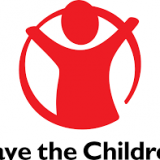Save the Children is a leading international organization helping children in need around the world. First established in the UK in 1919, separate national organizations have been set up in more than twenty-eight countries, sharing the aim of improving the lives of children through education, health care and economic opportunities, as well as emergency aid in cases of natural disasters, war and conflict.
In Nigeria, Save the Children has been working since 2001. The early focus was on getting children actively involved in shaping the decisions that affect their lives. Today, Save the Children is working in seven federal states – Zamfara, Yobe, Jigawa, Katsina, Kano, Bauchi and Kaduna – focusing on providing basic healthcare and protecting children.
Monitoring & Evaluation Coordinator
Role Purpose
- To assume a lead technical role in implementing, and maintaining effective and appropriate Monitoring and Evaluation systems for all project activities at the national level
- The post will involve coordination with state teams, and in line with USAID reporting requirements, and with SC guidelines and best practices.
Key Areas of Accountability
- Based on the project proposal, implementation plan, and donor reporting requirements, implement the system for capturing and documenting data and relevant information on project activities, beneficiaries, outputs, outcomes, and impacts, which is feasible, practical, and “user friendly”, and will obtain valid and reliable information.
- Ensure an effective M&E data collection and reporting system with all partners through mentorship, on the job training, site visits and other technical support as needed. Ensure systems are well understood and properly implemented by all partners.
- Work with state teams to maintain reporting processes to ensure that all information and data is collected, documented, and collated in an accurate and timely manner.
- Support the conduct of periodic supportive supervision and Data Quality Assessment visits to state teams, partners, and communities
- Liaise with donor and external stakeholders especially been an active member of the TWG
- Facilitate the sharing of information obtained with communities, and other stakeholders through a regular feedback mechanism.
- Ensure programming is aligned to targets and indicators contained in project proposal
- Constantly update the SMT and project team on project activities progress
- Provide on-going support to State teams to maintain M&E systems; identify skill gaps that can be addressed in subsequent trainings.
- Analyse information about the programme and make recommendations for improvements.
- Prepare and submit periodic reports, ensuring utmost quality
- Update project database routinely as at when required
- Support monthly data review meetings in States
- Any other duties as may be assigned by the Technical Director
Skills and Behaviours (our Values in Practice)
Accountability:
- Accuracy and timeliness in all areas of responsibility
- High level of accuracy in work, and ability to analyse complex sets of relationships and situations
- Holds self and others accountable
Ambition:
- Creating best-in-class EA function
- Future-orientated, thinks pro-actively
Collaboration:
- Working effectively with stakeholders to achieve common goals
- Excellent communication and interpersonal skills
- Builds and maintains effective relationships, with their team, colleagues, members and external partners
- Approachable, good listener, easy to talk to
Creativity:
- Designing more effective admin systems
- Willing to take disciplined risks
Integrity:
- Honest, encourages openness and transparency, demonstrates highest levels of integrity.
Skills/Experience
Essential:
- Advanced training in quantitative methodologies, including database management.
- Direct experience of monitoring and evaluation related to one or more of these fields: health, HIV, nutrition and/or economics of at least 5 years.
- Computer literate.
- Strong analytic skills, and an understanding of a range of methods for monitoring, evaluation and assessment to promote evidence-based learning.
- Sound strategic thinking and planning skills, including ability to think creatively and innovate and to set priorities, manageable workplans and evaluate progress.
- Ability to build support from staff across teams and across members, and to build the capacity of others.
- Ability to work in partnership with government and other organizations’ staff.
- Strong communications skills (both written and verbal) in English.
- Strong leadership skills.
- Independence, adaptability and flexibility.
- Commitment to team working and understanding of how to contribute.
- Commitment to SCI’s mission, values and approach (includes child protection, equal opportunities and health and safety).
Desirable:
- A professional qualification at postgraduate level or equivalent in health economics or epidemiology
- Experience of quantitative and qualitative research techniques
- Broad understanding of rights and development issues, international relations and the international humanitarian systems.
- Good knowledge of Hausa.
More Information
- Job City Abuja




